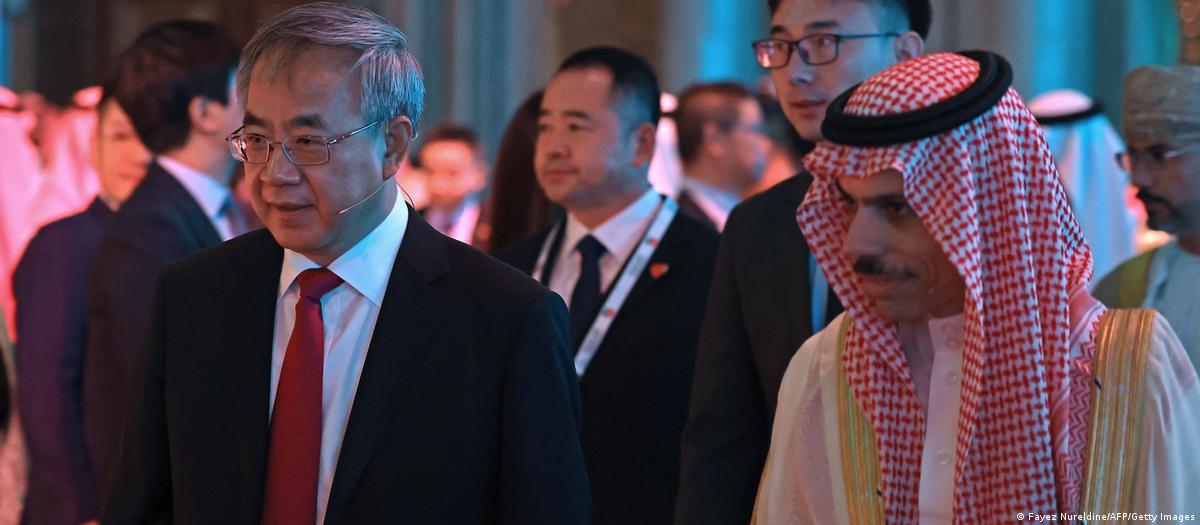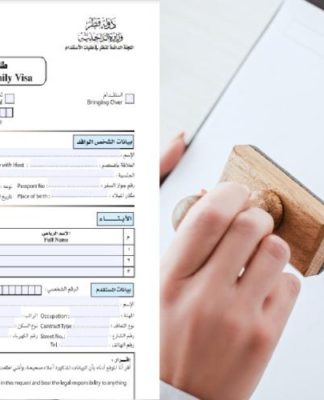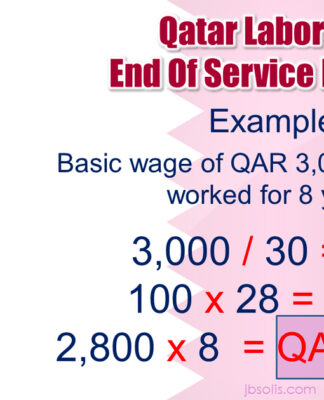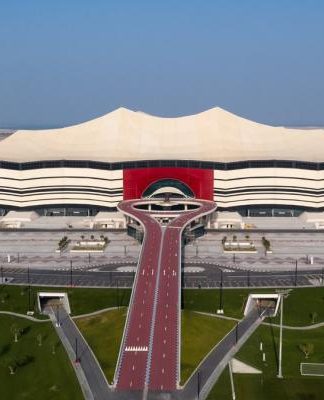BUSINESSCHINA
China’s economic ambitions a huge draw for Saudi Arabia
Nik Martin
6 hours ago6 hours ago
At a summit in Riyadh, China and Saudi Arabia announced $10 billion in investments in mining, technology and renewables. Washington is growing uneasy about Beijing’s deepening ties with the US’s closest Middle East ally.
https://p.dw.com/p/4SSox
Saudi Foreign Minister Faisal bin Farhan al-Saud (R) and Vice Chairman of the Chinese People’s Political Consultative Conference (CPPCC) Hu Chunhua attend 10th Arab-China Business Conference in Riyadh, on June 11, 2023
Saudi Arabia and China agreed business deals worth $10 billion during the summit in RiyadhImage: Fayez Nureldine/AFP/Getty Images
A sign of the shifting power balance in the Middle East was on show during the two-day Arab-China business summit in the Saudi capital Riyadh this week, as China and the kingdom announced investment deals worth $10 billion (€9.3 billion).
Saudi Arabia’s state-run news agency SPA said 30 agreements were inked across multiple sectors, including technology, renewables, agriculture, real estate, mining, tourism, and healthcare.
The 10th Arab-China Business Conference was described as a “mega-gathering” of some 3,500 business leaders, innovators and decision-makers from more than 26 countries — including the biggest-ever delegation from China.
Until now, Saudi Arabia has been Washington’s main partner in the Middle East and these latest deals with China are more evidence of waning US influence in the region.
The new collaborations come just three months after China brokered a rapprochement between Saudi and archfoe Iran after years of hostilities, taking opposite sides in proxy wars in Yemen and Syria.
Electric vehicle collaboration
More than half of the new Saudi-China investment cash will allow luxury Chinese electric-vehicle (EV) maker Human Horizons to build new automotive production facilities in the kingdom.
“We don’t have to compete with China, we have to collaborate with China,” Saudi Energy Minister Prince Abdulaziz bin Salman told delegates of the deal.
He played down Western suspicion of the growing ties between Beijing and Riyadh, saying: “I actually ignore it because … as a business person … you will go where opportunity comes your way.”
Saudi Arabia’s Minister of Energy Prince Abdulaziz bin Salman Al-Saud speaks during 10th Arab-China Business Conference in Riyadh, Saudi Arabia on June 11, 2023Saudi Arabia’s Minister of Energy Prince Abdulaziz bin Salman Al-Saud speaks during 10th Arab-China Business Conference in Riyadh, Saudi Arabia on June 11, 2023
Saudi Energy Minister Prince Abdulaziz bin Salman Al-Saud said the kingdom wants to avoid a “zero-sum game”Image: Ahmed Yosri/REUTERS
Just days earlier, US Secretary of State Anthony Blinken told his Saudi counterpart that Washington was not forcing the kingdom to pick sides over tensions with China.
Saudi leaders have said they are keen to avoid a zero-sum game, referring to the geopolitical rivalry between the US and China, which some analysts think the kingdom can utilize to its advantage.
“China’s influence is giving Middle East countries more bargaining power with the US,” Dawn C. Murphy, associate professor of national security strategy at the US National War College, told DW.
“But I don’t think these countries have any expectations that China is going to provide the same security guarantees that the US does … it really is an economic and political presence.”
From energy trade to Vision 2030
China and Saudi have had strong economic ties for decades, thanks to China’s insatiable appetite for Saudi oil. Trade between the two countries was worth more than $106 billion in 2022, a 30% rise from the previous year, according to Saudi government figures. This compares to $55 billion in US-Saudi trade.
China imports half of its oil from the Middle East and is the top oil customer of both Saudi Arabia and Iran. As Saudi attempts to diversify its economy from energy production via the Vision 2030 plan, Chinese companies are set to benefit from the awarding of huge infrastructure contracts.
A Chinese firm has already built Mecca’s light-rail system, which helps hundreds of thousands of pilgrims to get around the holy city. The 18-kilometer (11-mile) line, with nine stations, was the first to be built by a Chinese company in the Middle East.
TRhe Mecca light rail operated in the Hajj season in Mecca, Saudi Arabia on July 13, 2022TRhe Mecca light rail operated in the Hajj season in Mecca, Saudi Arabia on July 13, 2022
The Mecca Light Rail system was built by a Chinese firmImage: Han Xiaolin/CRCC/Xinhua News Agency/picture alliance
Among other deals in the works, a Chinese construction firm won the contract to build a 28-kilometer high-speed rail tunnel to NEOM, the kingdom’s under-construction smart city on the Red Sea.
Several Middle East countries have signed up for infrastructure projects linked to China’s massive Belt and Road Initiative (BRI), dubbed the New Silk Road, which aims to boost trade between Asia and the rest of the world.
Iran-Saudi detente: a turning point
In March, China demonstrated its growing clout in the Middle East when it brokered a surprise rapprochement between the kingdom and Iran, seven years after the archfoes severed ties.
The end of hostilities also led to the restoration of ties between the kingdom and Syria, which Washington has criticized.
In a further embarrassment to the US, Palestinian leader Mahmud Abbas is currently in Beijing after the Chinese expressed readiness to help facilitate long-stalled peace talks between Israel and the Palestinians.
US-Saudi relations, meanwhile, have deteriorated since the 2018 murder of dissident journalist Jamal Khashoggi, a US resident, inside the Saudi consulate in Istanbul.
They worsened after US President Joe Biden took office in early 2021 and released a US intelligence assessment that Saudi crown prince Mohammed bin Salman approved Khashoggi’s killing, which he has denied.
Other rows have simmered over the Saudi intervention in Yemen’s devastating conflict, human rights and oil prices.
BRICS rivalry, de-dollarization calls grow louder
The US faces further rivalry in the region as Saudi Arabia, along with the UAE, Egypt, Bahrain and Iran, prepare to join the BRICS geopolitical bloc, which is led by China but also includes Russia, India, Brazil and South Africa.
Western sanctions on Russia over Moscow’s invasion of Ukraine, which included a freeze on some $300 billion of the Russian central bank’s foreign reserves, sparked a move by many wealthy non-Western nations to become less reliant on the US dollar and American banking system.
This photo illustration shows Chinese 100 yuan notes in Beijing on January 14, 2020This photo illustration shows Chinese 100 yuan notes in Beijing on January 14, 2020
The Chinese yuan (renminbi) is often touted as dollar’s replacement as the world’s reserve currencyImage: Nicolas Asfouri/AFP
BRICS has created its own version of the SWIFT bank payments system and is now considering an alternative currency.
In the meantime, Saudi leaders have also expressed their willingness to accept payments for oil from Beijing in the Chinese currency, the renminbi.
While many analysts think the move would further undermine US hegemony, Murphy played down the significance as the renminbi is not convertible with international currencies.
“Since you have relatively balanced trade between China and Saudi Arabia and the volume is so large … they don’t have as much risk and it sends a positive message to China that it [Saudi Arabia] values the relationship more broadly,” she told DW.
Edited by: Uwe Hessler






























